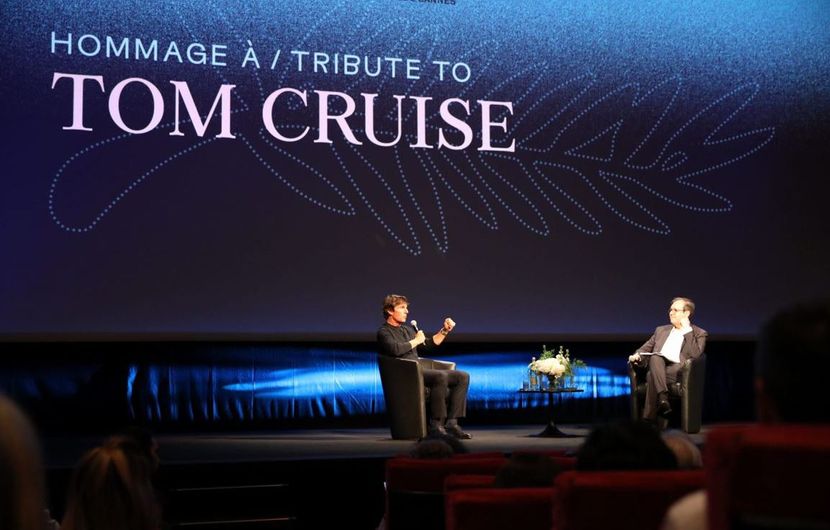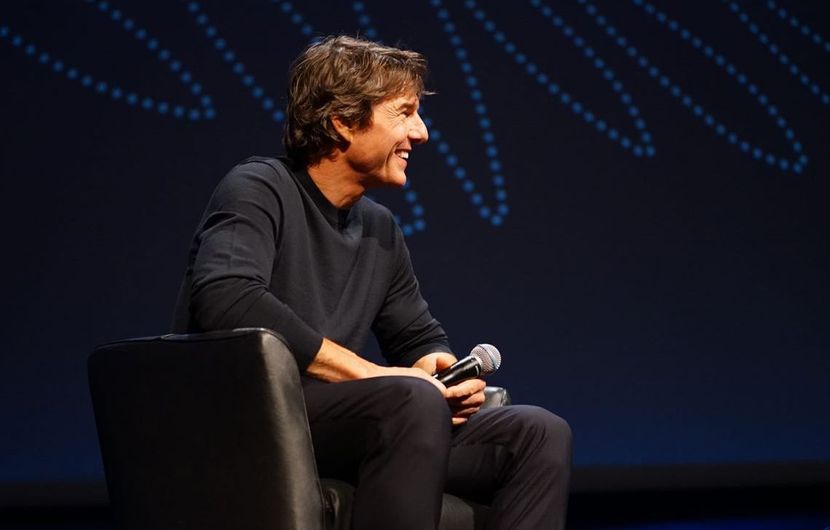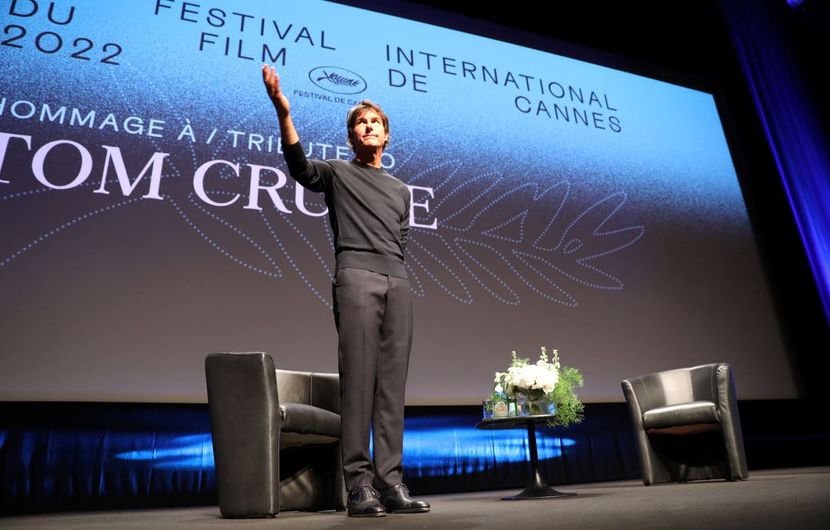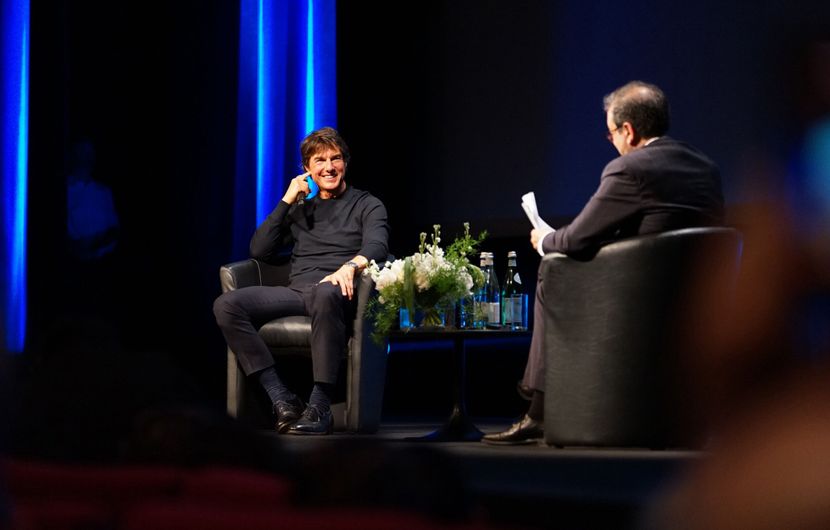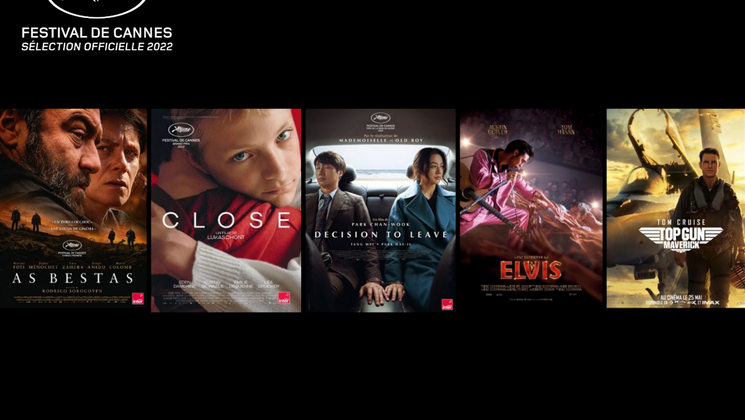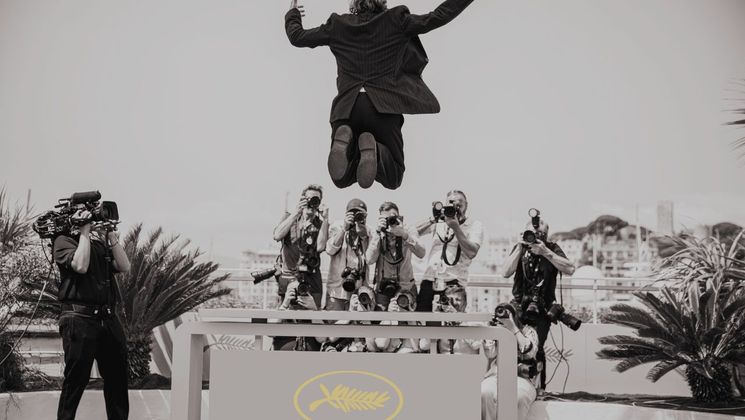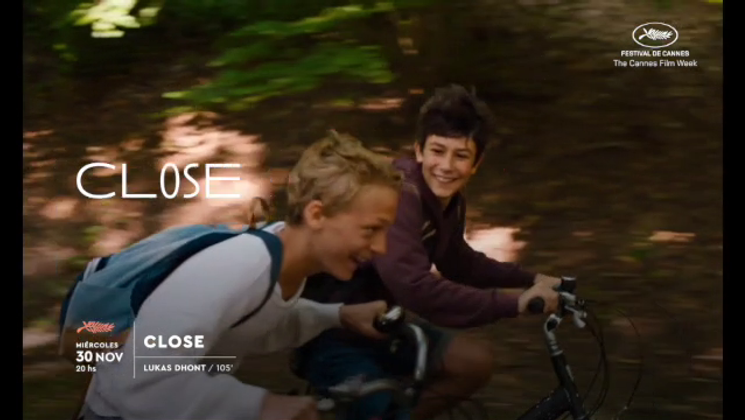Conversation with Tom Cruise
In Conversation with Tom Cruise
In Cannes for the first time in 30 years, and for the screening of Far and Away, Tom Cruise delighted the Festival with his presence. On the programme: the premiere of his latest film Top Gun: Maverick, the presentation of an honorary Palme d'Or in tribute to his career, and a Conversation with the Public hosted by journalist Didier Allouch. Selected excerpts.
Cinema, even as a child
As a child, I was 4 years old, I wanted to make films, I wanted adventure in my life, I wanted to climb trees, I was constantly writing stories. Later I sold postcards door to door and with that money I went to the cinema.
“I never want to take things for granted. We all have a dream, and this is my dream.”
Beginnings and inspiration
When I was 18, I suddenly got a small role after my second audition. From then on, I decided to study absolutely everything in the film industry and to educate myself. I was always interested in people, I wanted to learn about cultures. I held on to my dream and said to myself: "You can do it".
I had this small role in Taps (1981) and the director Harold Becker would invite me to observe things, to understand the light, he would take me to see the shots, and he would say to me: "You're not going to like your image, but try to imagine what the audience might feel. And I would observe and note how the light could change everything. I have been surrounded by generous people, who have allowed me to learn, tirelessly.
I like a wide spectrum of films. I grew up with Buster Keaton, Charlie Chaplin, Harold Lloyd.
Working method
I try to use all the experience I have, every department of a film is important and you have to create a certain environment to feel a story. It's not enough to write it.
I like the idea of a team, of creating things together, a great story. I always say to the other team members: this is not my film, this is OUR film.
Everyone has their own idea of interpretation. The best thing you can do is to learn all the details of how a film is made to understand. And I'm lucky, I've worked with some incredible directors and technicians.
Seeing the films on the big screen
The writing of a film is very different depending on whether it is written for cinema or television. I always go to the cinema as soon as a film is released, put on my hat and go. I test the atmosphere. My films will never be on the platforms.
On acting
I know the shots by heart, I remember everything.
For the scenes in Eyes Wide Shut (1999), Stanley Kubrick invited us to talk about the light, we looked at the frame, talked about the lenses. It was as if we had to discover something. You discover and suddenly you know when it's right.
Preparation is everything, even if you throw everything away. And I don't want people to see all the work that goes into it.
Stuntman
Nobody asks Gene Kelly: why do you dance? For Mission Impossible, the first film I produced, I asked myself: how can I entertain the audience. I developed talents over time, as I shot, I took dancing lessons, singing lessons, I learned to fly a helicopter… to create a unique experience for the audience.
And, yes, I am scared when I do my stunts but I am always thinking about the story, the audience, how it can impress them. How do you create that effect on your audience? It's a journey. I've always made my films for them, I go home and ask myself what I can give them. I don't want to disappoint them.
And it's better to go for it even if you fail, than not to try. I dedicate my life to film because I feel incredibly privileged to do what I do.
